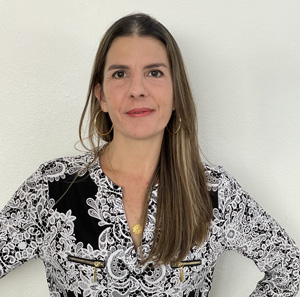Most workers feel empowered to decline extra tasks but burnout persists

Younger employees and women report higher levels of frustration and mental health challenges despite setting boundaries.
A new study by Resume Now, a career and resume service, found that while 65% of workers feel empowered to decline extra tasks, the emotional toll of additional responsibilities continues to impact employees, especially workers younger than age 25 and women.
The “Price of Extra Work” survey, which polled 1,160 professionals, highlights that saying “no” can bring “relief and confidence,” but burnout and mental health challenges remain widespread.
Melissa Rivera-Roena, general manager of ManpowerGroup for Puerto Rico and the Dominican Republic, reacted to the survey findings, saying: “Burnout is a clear sign that balance is lacking. Employers should promote manageable workloads and a blame-free boundary-setting culture to protect employee well-being and productivity.”
The study found that 65% of workers feel empowered to decline extra work, with younger workers (25 and under) reporting the highest levels of empowerment at 77%, compared to 56% among workers aged 26-40 and 66% among those aged 41 and older.
Gender differences were also noted: 69% of men feel comfortable setting boundaries compared to 62% of women, who are more likely to weigh the situation before saying “no.” Younger employees also report higher frustration levels (38%) and difficulty managing workloads (38%) compared to older colleagues.
Keith Spencer, a career expert at Resume Now, noted that while boundary-setting brings relief, workload management remains a struggle: “Despite feelings of relief and confidence when declining additional responsibilities, burnout underscores the ongoing challenge of balancing workload expectations.”
“Giving employees the ability to set boundaries fosters a healthier, more productive workplace,” Rivera-Roena told News is My Business. “It’s important for employers to address disparities and ensure everyone feels safe to say ‘no’ when necessary.”
Stress and burnout remain widespread. The survey found that 59% of workers frequently experience burnout due to difficulty declining extra work. Accepting extra responsibilities often interferes with personal or family time, with 52% reporting occasional interference and 12% experiencing it constantly.
The study revealed that declining additional work leads to relief (42%) and increases confidence in prioritizing tasks (31%). However, younger workers (25 and under) report the most guilt after saying “no” (26%), and women are more likely than men to feel frustration (43% versus 36%) and difficulty concentrating (41% versus 35%) due to extra work.
Rivera-Roena and Spencer both emphasized the importance of fostering a supportive workplace culture. Rivera-Roena told News is My Business: “Giving employees the ability to set boundaries fosters a healthier, more productive workplace. It’s important for employers to address disparities and ensure everyone feels safe to say ‘no’ when necessary.” Spencer added, “The report’s findings highlight the ongoing struggle to balance workload expectations with personal well-being.”
The survey also found that 28% of workers have left a job due to stress or burnout. Workers aged 26-40 were the most likely to feel they couldn’t say “no” to extra work without negative consequences (12%), compared to only 3% of workers 25 and under and 4% of those aged 41 and older.
Proactive strategies, such as adjusting workloads or setting boundaries, are recommended to reduce burnout, with 34% of workers reporting they’ve adjusted their workloads and 32% seeking support from managers or colleagues.
Rivera-Roena concluded: “Fostering work-life harmony drives passion and productivity — it’s a win-win for employees and employers alike. Ultimately, employers want happy, engaged employees, and everyone benefits when work-life balance is prioritized.”
The full report is available online.





